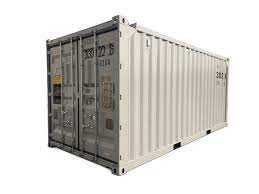Offshore containers inspection
-
 Safety Compliance: Offshore container inspection is mandated by regulatory bodies and industry standards to ensure compliance with safety regulations. These regulations often require periodic inspections by certified inspectors to verify the structural integrity and safe operation of offshore containers.
Safety Compliance: Offshore container inspection is mandated by regulatory bodies and industry standards to ensure compliance with safety regulations. These regulations often require periodic inspections by certified inspectors to verify the structural integrity and safe operation of offshore containers. -
Risk Management: Offshore environments pose unique challenges and hazards, including harsh weather conditions, corrosive saltwater, and heavy lifting operations. Regular inspection helps identify potential risks such as structural damage, corrosion, or equipment malfunction, allowing for timely corrective actions to mitigate these risks and prevent accidents or injuries.
-
Asset Protection: Offshore containers represent a significant investment for companies operating in the offshore industry. Regular inspection and maintenance help protect this investment by ensuring the longevity and reliability of containers, reducing the risk of costly repairs or replacements, and maximizing the return on investment.
-
Operational Continuity: Offshore operations are often time-sensitive and require seamless logistics and supply chain management. Any disruption to container availability due to equipment failure or non-compliance can result in costly delays and downtime. Regular inspection helps maintain operational continuity by ensuring that containers are fit for purpose and available when needed.
-
Environmental Protection: Offshore environments are sensitive ecosystems that must be protected from environmental contamination and pollution. Inspecting offshore containers for leaks, spills, or hazardous materials ensures compliance with environmental regulations and minimizes the risk of environmental incidents that could have far-reaching consequences.
-
Worker Safety: The safety of personnel working on offshore installations is paramount. Regular inspection of offshore containers helps create a safe working environment by identifying and addressing potential hazards or safety issues that could endanger workers' lives or health.
-
Regulatory Compliance: Offshore container inspection is often a requirement for obtaining regulatory certifications and approvals to operate in offshore environments. Companies that fail to comply with inspection requirements may face legal liabilities, fines, or penalties, as well as damage to their reputation within the industry.
Offshore container inspection is essential for ensuring safety, regulatory compliance, asset protection, and operational efficiency in offshore operations. By prioritizing regular inspection and maintenance of offshore containers, companies can mitigate risks, protect their assets and personnel, and maintain a competitive edge in the offshore industry.
Download PDF Datasheet
Ut enim ad minim veniam, quis nostrud exercitation ullamco laboris.
Download PDF



